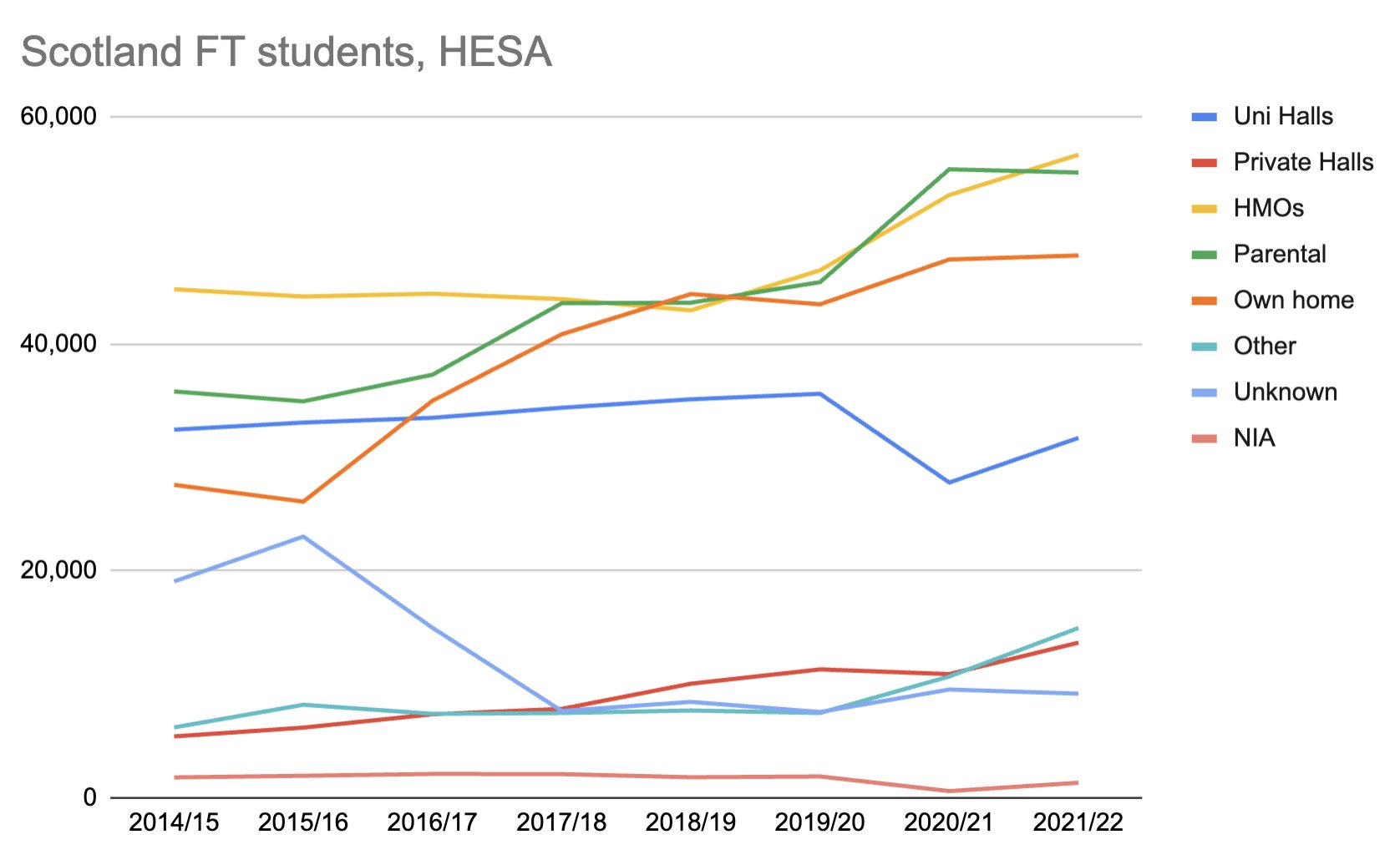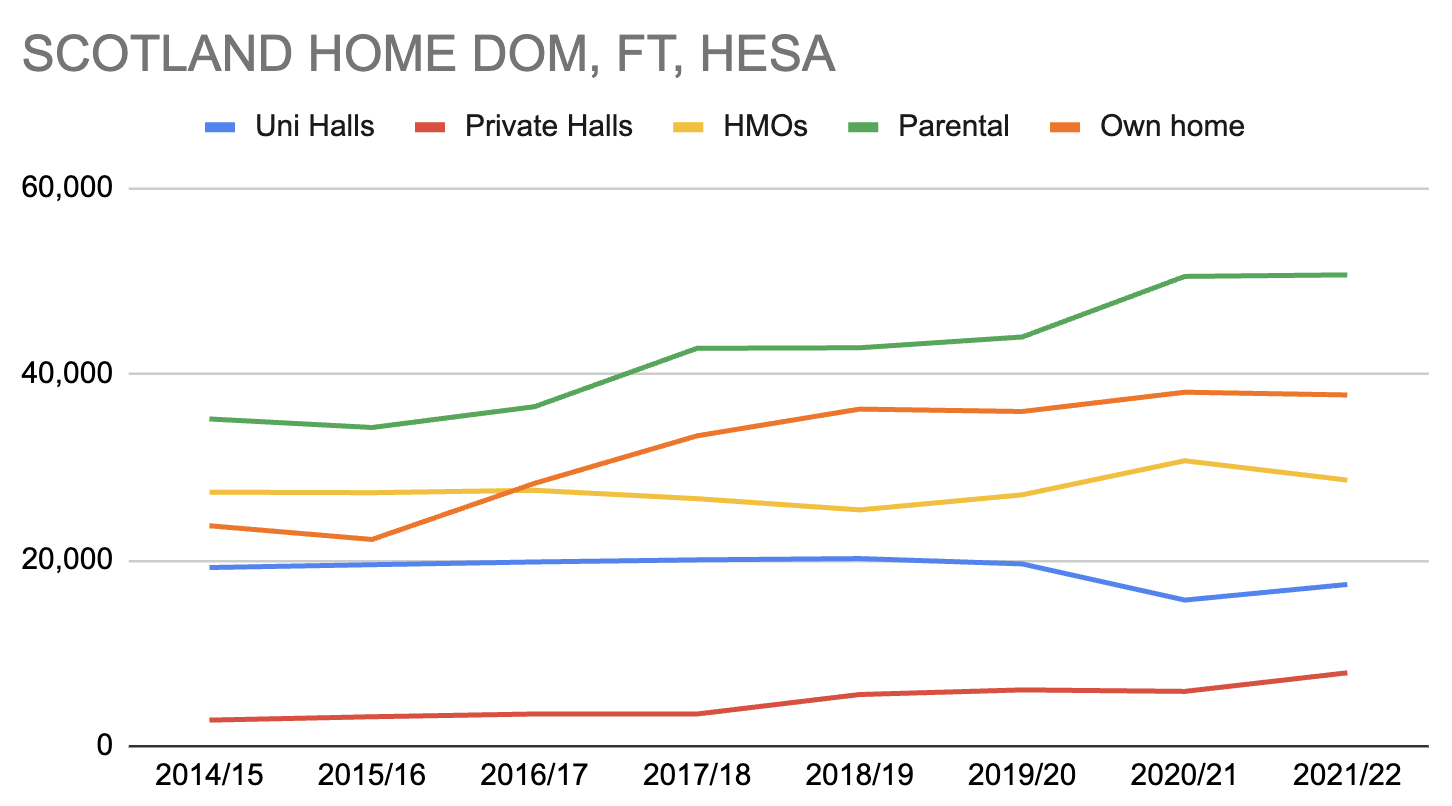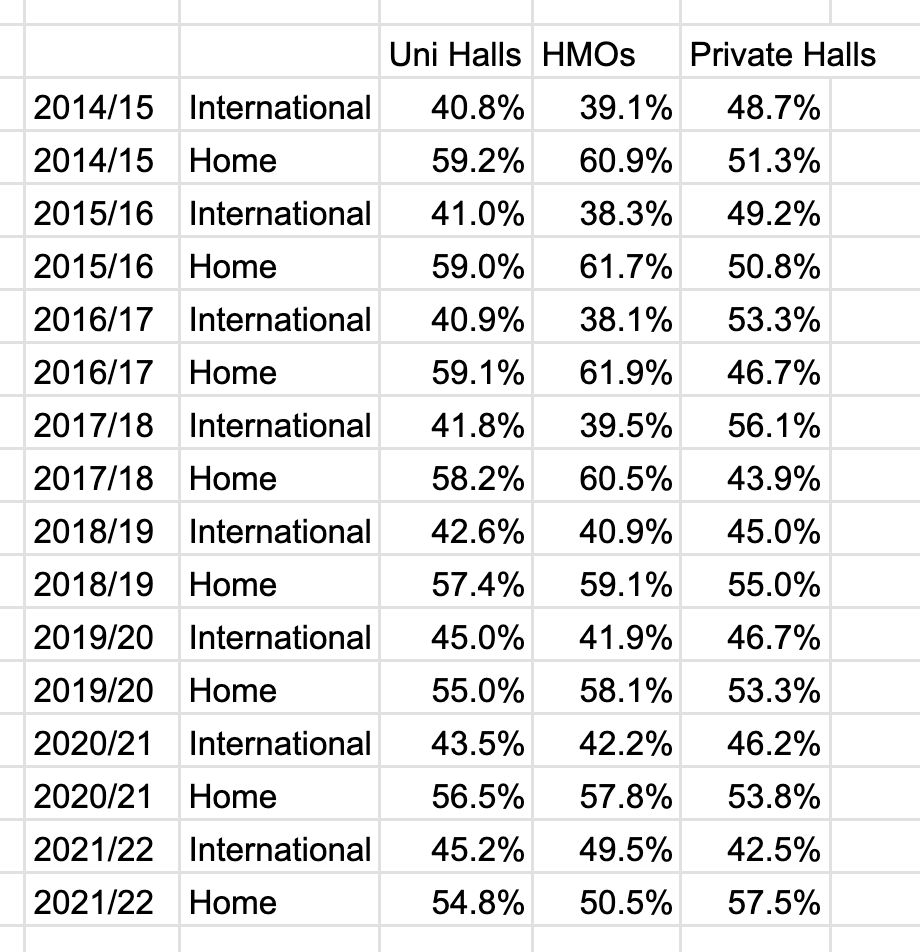Are international students crowding out Scottish students? Not in the way the Scottish Conservatives think
Jim is an Associate Editor (SUs) at Wonkhe
Tags
With a fun social media graphic to go with it, the claim is that with international recruitment up, universities are being “forced to turn away talented homegrown students” because of the cap on funded places for Scottish students.
The SNP’s cap on places offered to Scots means that our universities are forced to turn away talented homegrown students in favour of paying foreign students each year.
They must urgently lift this cap so that more Scottish students can attend universities in their own country. pic.twitter.com/CkffJL84bh
— Scottish Conservatives (@ScotTories) October 22, 2023
Conservative education spokesman Liam Kerr says:
The SNP’s unacceptable underfunding of Scottish higher education means that our universities are becoming ever more dependent on tuition fees from international students.
While it’s welcome that so many young people from across the globe choose to study in Scotland, our universities’ reliance on international fees is having an unfair impact on young Scots.
Universities have made it clear that the SNP’s arbitrary cap on the number of places offered to Scots each year means that they are forced to turn away talented homegrown students.”
It’s such nonsense. A Scottish Government spokesperson inevitably said:
International students make a significant contribution to our society, culture and economy. These students add to the diversity of our communities, enrich the learning experience and support local businesses and jobs.
The number of Scottish-domiciled full-time first-degree entrants has increased by over 31% since 2006-07.
We have also seen a record number of Scottish students from deprived areas enrolling in university for the first time, with a recent report from the Commissioner for Fair Access making clear that Scotland continues to set the pace in the UK for fair access to higher education.”
Round and round the pointless argument goes. But what’s frustrating is that the Scottish Tories might just have a point – at least a related one.
We often hear that the student housing problem in Scotland is a supply side problem – with oft-repeated claims that HMO (ie private house) landlords have been exiting the market since renters’ reforms in 2019. The problem is that HESA stats indicate that that simply isn’t the case:

Of course it could well be that the growth in HMOs represents a broadening of geographical areas that students are living away from home in – but that should hardly cause anyone comfort. What is true is that in raw numbers terms, UK domiciled students in Scotland ARE living in the parental home more than ever before:

What’s fascinating is that international students increasingly seem to be taking up the HMO stock that is there:

Here’s the away from home stock split between international and UK domiciled. For university halls and HMOs, the percentage occupied by international has been growing:

So while what the Scottish Tories keep saying about university places is probably wrong – international students fund home domiciled places – when it comes to “away from home” housing stock places, international student recruitment may well be crowding out home students from somewhere to live given soaring demand.
That chart above that splits UK domiciled v international for away from home stock doesn’t take into account RUK students v Scottish students – so if the former has been growing, then the situation is even worse for Scottish students trying to get a student home away from home.
To put this all another way – in the period 2014/15 to 2021/22, FT UK domiciled students were up 22.1 per cent at Scottish universities, whereas FT international domiciled were up 66.6 per cent. But away from home bed spaces only grew by 11 per cent.
And by definition, pretty much ALL RUK and international students need an away from home bed. That is the nature of the Scottish student housing problem generally, and the one facing Scottish students who want to go to university away from home specifically.

